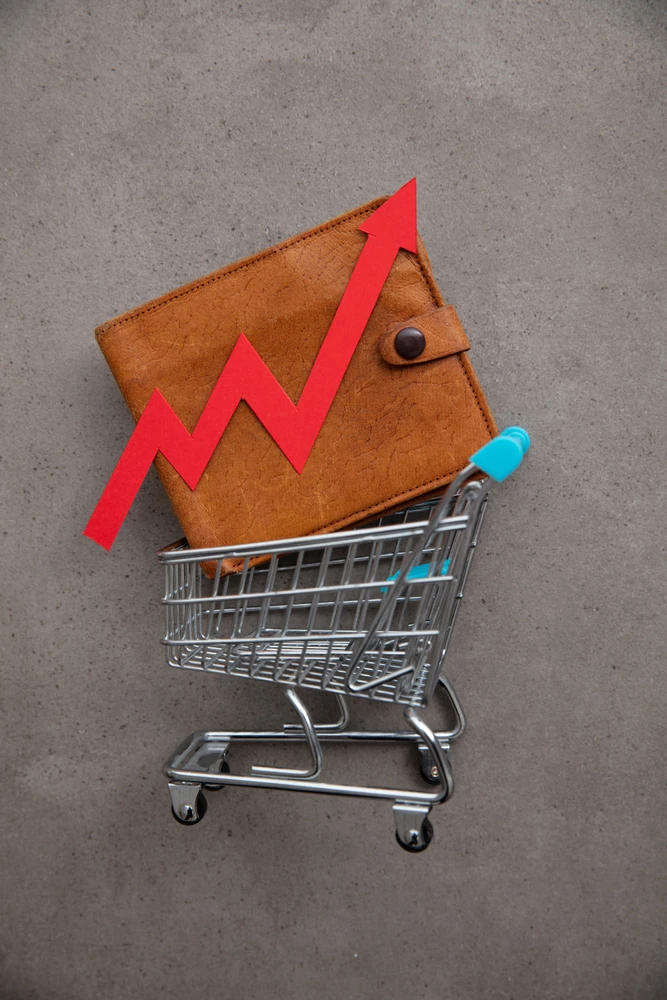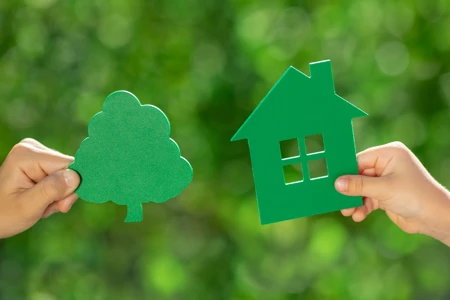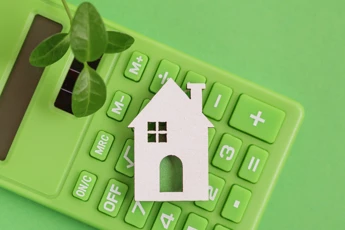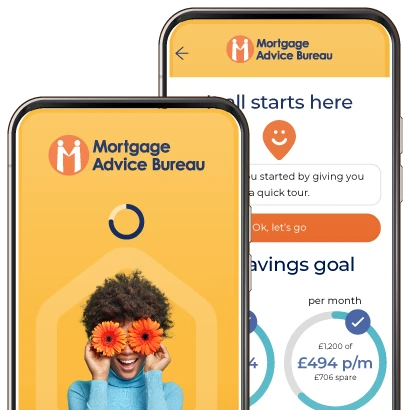Qualifying for a green mortgage involves meeting specific eligibility criteria set by lenders. While these criteria may vary between financial institutions, here are some common requirements:
High EPC (Energy Performance Certificate) rating
To be eligible for a green mortgage, you will typically need to make specific energy efficiency improvements to your property (or already live in an energy-efficient property. These may include installing insulation, double-glazing windows, energy-efficient heating systems, or renewable energy sources like solar panels.
An EPC grade of A, B, or occasionally C, on the house you are purchasing or living in can earn you cashback or a lower mortgage interest rate. Homebuyers and, in certain situations, remortgagers can apply for this kind of green mortgage.
The reason why sometimes a C rating may be sufficient is that there are a few lenders who will accept C rated properties as eligible for a green mortgage.

Standard Assessment Procedure (SAP)
SAPs are similar to EPC ratings, but for new build homes that are in the process of being built, to ensure they meet current building regulations. An SAP is the only recognised, government-approved method for determining a new build home's energy-efficiency and is also used to produce EPCs.
SAP ratings are a means for evaluating the energy efficiency of various dwellings; a score between 1 to 100 indicates energy cost, with 100 meaning that you have zero energy cost, and anything 100+ indicates that you are exporting energy.
Standard mortgage affordability criteria
You, as the borrower, must meet the standard mortgage eligibility requirements, such as creditworthiness, income, and employment stability. Lenders will assess your financial situation, just as they would for a conventional mortgage.
Benefits of a green mortgage
As with all mortgage products, there are a range of benefits that come along with green mortgages, here are a few of them, summarised.
Financial incentives
Some green mortgage products may provide additional financial incentives, such as discounted interest rates, cashback, or fee waivers.
These incentives can vary, so it's important to speak to an expert mortgage adviser to discuss your options and explore what lenders offer.
Reduced carbon footprint
Making eco-friendly improvements to your home can significantly reduce your carbon emissions and environmental impact. According to the International Energy Agency (IEA), the operation of buildings accounts for 30% of global energy consumption, and 26% of global energy-related emissions.
As a homeowner, you could help reduce these emissions by installing renewable energy sources on your property, such as solar panels and heat pumps. It can also be achieved through things like improving your energy usage monitoring via a smart meter, upgrading lighting to more energy efficient bulbs, improving insulation, and incorporating better waste reduction and recycling when retrofitting your property.
Lower energy bills
Achieving a more energy-efficient home through green mortgages often means lower utility bills, reducing your long-term housing costs. For example, installing a heat pump instead of a traditional heating system - while it comes with an upfront cost to purchase and install, this can be compensated for with ‘lower running costs and beneficial total life-cycle costs’, according to the IEA.
Improved property values
Energy-efficient upgrades can increase/hold the resale value of your property, making it an attractive option for future buyers, especially as the appetite for energy-efficient homes increases.
Knight Frank, an independent real estate consultancy, states that properties that were raised from F or G rated property to a C saw an increase in their value of 19.6% - so it is fair to say that raising your property to an A or B rating would see your property value rise or hold.
Qualifying for a green mortgage
Qualifying for a green mortgage requires a commitment to making environmentally conscious choices, which is not only beneficial for the planet but also for one's own financial well-being. By choosing to invest in a more sustainable and energy-efficient home, we not only secure our future but also contribute to a greener and healthier world for generations to come.
Important information
Your home may be repossessed if you do not keep up repayments on your mortgage.
There may be a fee for mortgage advice. The actual amount you pay will depend on your circumstances. The fee is up to 1% but a typical fee is 0.3% of the amount borrowed.







